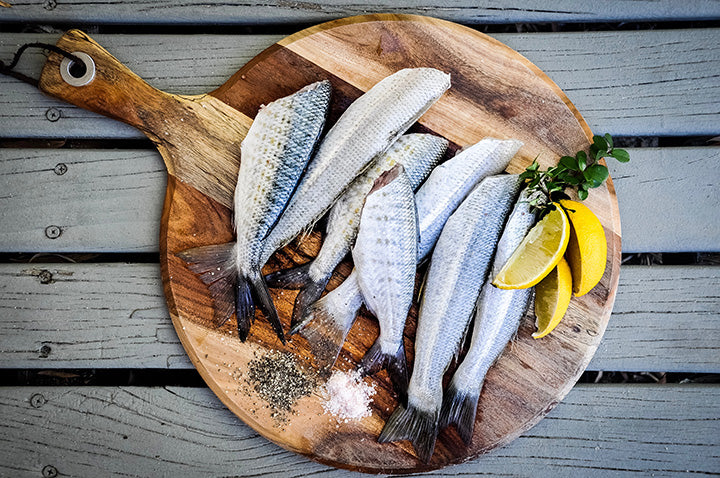Nothing fishy here – eating fish is good for you

Eating fish factors into a healthy lifestyle.
More importantly, it’s about eating the right kind of fish.
Cold-water, fatty fish are especially beneficial to our health. The omega-3 fatty acids DHA and EPA within fish are associated with many benefits, such as a healthy heart, skin and eyes.
Here’s just a few of the health benefits linked to consuming fatty fish:
- Heart health – Fish oil has been shown to raise “good” cholesterol, lower triglycerides and reduce blood pressure.
- Vision – Studies have linked fish oil consumption to prevention of age-related macular degeneration.
- Skin – Fish oil has been shown to help psoriasis and dermatitis.
- Inflammation fighter – Chronic inflammation associated with conditions from diabetes to depression to rheumatoid arthritis is reduced with fish oil supplementation.
- Healthy baby – Omega-3s are important to early growth and development, and therefore an important part of mom’s diet while she is pregnant and breastfeeding.
Choose whole fish over supplements
Why cold-water fish? Their environment encourages production of omega-3s. Fatty cold-water fish include salmon, trout, sardines, anchovies and cod, among others.
Eating fish in its whole form, as opposed to taking a supplement, delivers all of the benefits of the fish as nature intended.
Some people do turn to fish oil supplements in capsule or liquid form to get their dose of healthy fatty acids. But recent scientific studies have shown fish oil supplements’ effects to be a mixed bag.
One study in the New England Journal of Medicine found that omega-3 supplements didn’t help reduce the risk of heart attacks or death from heart disease in people who already had risk factors associated with heart disease.
And some studies have shown fish to be beneficial in the fight against certain kinds of cancer, while others have shown there can be too much of a good thing – taking too much actually be harmful. Long-term fish oil consumption has also been tagged in cases of fatty liver disease, which can lead to liver cancer.
The takeaway here is that taking stand-alone supplements may not give us the same health benefits as eating the fish itself. This is likely because of all the other nutrients that come along with consuming whole food instead of a supplement.
Watch the source
Polluted habitat has resulted in high levels of mercury and other toxins in some of the fish we eat. Smaller fish, such as sardines, are lower on the food chain and are less likely to contain dangerous levels of toxins. (If you do choose to take supplements, this goes for the fish harvested for the supplements as well.)
You don’t have to be Jacques Cousteau to know which fish are safe to eat thanks to the Monterey Bay Aquarium’s Seafood Watch, which provides a list of the safest – and most sustainable – varieties of fish to eat. You’re likely to come across a few you’ve never heard of. Give them a try! Along with eating something good for you, you’ll be eating something that doesn’t harm fragile fisheries.
How much fish should you eat? Experts suggest just one or two servings per week will provide benefits.
For those of you who just can’t stomach the thought of fish, omega-3s are found in plant-based sources as well, such as flaxseed, chia seeds and walnuts. These foods, however, primarily contain another fatty acid – ALA. Each fatty acid has its own benefits in the body, so isn’t a one-to-one swap trading flaxseed for fatty fish.
If you haven’t been a fish eater all your life, you may be surprised how really delicious it can be. I know I was! Read more about eating and cooking fish here.
Sources:
https://www.healthline.com/nutrition/13-benefits-of-fish-oil#section
https://www.health.harvard.edu/blog/fish-oil-friend-or-foe-201307126467
https://www.seafoodwatch.org/seafood-recommendations
https://www.livestrong.com/article/411442-what-kind-of-cold-water-fish-are-healthy-to-eat/
https://www.medicalnewstoday.com/articles/320795.php
Photo by Jeremy Stewart on Unsplash
